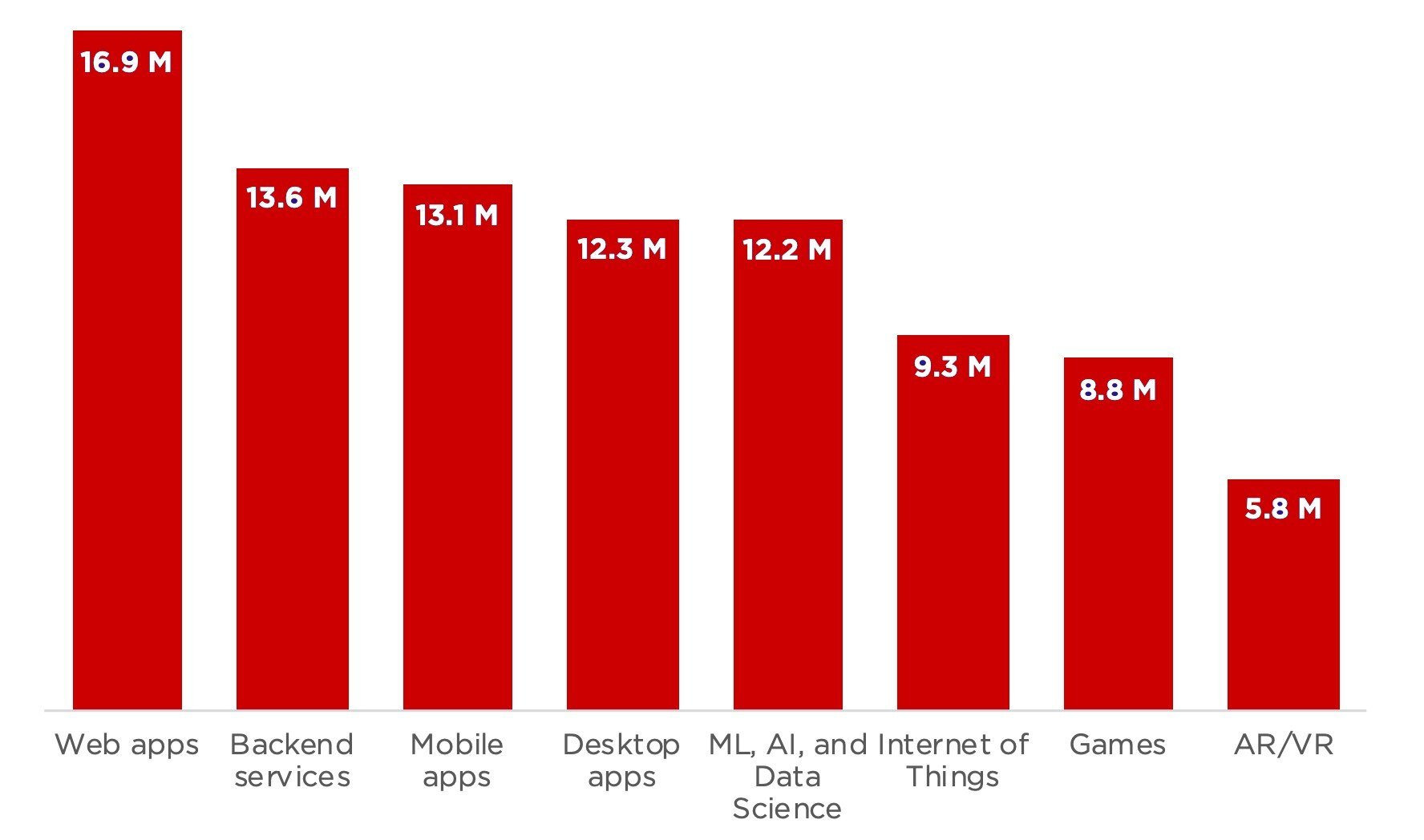The Next Wave of Startups Expanding to Europe comes from the Middle East
The past decade has witnessed a new wave of innovative startups in the Middle East. Expanding to Europe, the world’s largest economy, could bring them and our ecosystem unprecedented growth.
During 2019, the value of funding deals for starts-ups has reached new heights in the Middle East and North Africa (MENA) region, totaling 704 million U.S. dollars, from $410 million in 2017
The EU, being the world’s largest economy, is an obvious target for ambitious startups looking for new ways to expand their operations
Portugal is culturally and historically bound to the region in ways few other countries are and could be a premium base of operations for MENA startups looking to establish a presence in the ‘old continent’
Back in 2005, Ronaldo Mouchawar launched a small auction website in his hometown of Aleppo, Syria. Even before the ensuing civil war, this seemed like a staggering effort considering only 10 percent of the people in the region were online at the time and that internet shopping was mostly non-existent.
Still, he persevered and over the next decade, with digital adoption booming, the small website, Souq.com, would be transformed into an e-commerce giant with more than 4 million customers. The company, recently bought by Amazon, has 3,000 employees and has helped support cross-border trade.
Souq.com is a testament to the ability of startups to drive change and create new industries. Today, the Middle East and North Africa (MENA) region is one of the most digitally connected in the world: an average of 88% of the population is online daily, and 94% of the population owns a smartphone.
Undergoing a period of great social, political, and economic transformation, the region is becoming a hub of commercial innovation and entrepreneurship. The digital transformation has brought forth a promising startup landscape.
The Middle East and North Africa Startup landscape
Home to a population of more than 430 million people and with a GDP of USD $2.8 trillion, the MENA region is experiencing a new wave of economic activity.
While outside of the tech sector many businesses struggle, micro-mobility and mass-transportation start-ups are growing fast. Fintech is on the rise in a region that is mostly underbanked. Ecommerce disruptors such as souq.com are leading the transformation. Food tech, dark kitchens and virtual restaurants are being launched in a region that celebrates food. Local streaming services featuring regional music, films and TV shows are on the rise.
Based in Lebanon, Anghami is the region’s largest local music-streaming service. As of early 2017, the service’s 30 million users streamed 500 million songs a month. Fetchr, a Dubai-based company, uses smartphone GPS technology to accurately locate users for package delivery. Payfort (now an Amazon company post-acquisition) has grown into one of the leading payment platforms in the Arab world.
These breakthroughs across the Middle East and North Africa have led to impressive numbers for the region’s startup funding landscape. During 2019, the value of funding deals for starts-ups totaled 704 million U.S. dollars, from $410 million in 2017. The number of deals in the same period rose from 258 in 2017 to 564 in 2019.
However, thriving in the MENA startup ecosystem alone can be challenging. According to VC’s and founders operating in the region, the path from ideation to the actualization of a viable business is lined with miles of red tape. While the increase in international investment is promising, gaps in different stages of funding remain a critical issue. Angel funding to kick-start startups, in particular, is still lacking in a region where 49% of the startups are looking for less than $250,000 in funding. The lack of a cohesive data aggregate can make researching the industry – and preparing for success - difficult. And, perhaps more telling of the need to expand, many MENA countries still share similar issues tackled by multiple startups with convergent goals.
For ambitious startups looking for new ways to expand their operations even further there is one obvious target - Europe.
Why the new wave of MENA startups should set their sights on expanding to Europe
Startups based in Europe have direct access to the world's largest economy of 500 million people and a GDP of €25,000 per head. The EU is also the top trading partner for 80 countries, including many MENA nations. And Europe has around 5.7 million developers, compared to 4.4 million in the U.S. and 3.7 million in the MENA region.
As startups search for a hub inside the EU to grant them access to a vast, stable and prosperous market, there are many factors to be considered. Portugal’s ancient bond to the Middle East and North Africa can be traced back more than a millennia and is a testament to the deep cultural connection bonding the regions. But there are other reasons why investors and entrepreneurs should consider Portugal for their EU base of operations.
A SHARED HERITAGE, LANGUAGE AND CULTURE
The Islamic past is a foundational element of Portuguese identity and heritage.
In the 8th century, Muslims sailed from North Africa and took control of what is now Portugal. Known in Arabic as al-Andalus, the region prospered under Muslim rule and by the 10th century, half the population of the Iberian Peninsula was Muslim. Centuries of coexistence later, it should not be too surprising that Arabic influences can still be found in the Portuguese language.
In a time of hardening borders and strict divisions between the north and the south of the Mediterranean, both shores are bound together by their common culture and history.
EUROPE’S NETWORKING CAPITAL
In 2016, Web Summit, the annual global tech conference, moved from Dublin to Lisbon. In 2019, the Web Summit hosted events and talks for over 70,000 visitors from all over the world. This is just one example of how Portugal has positioned itself as a networking capital of Europe.
Portugal also shares London’s time zone, which facilitates teamwork for multi-site teams, and it is the closest European country to the US with frequent connections to American tech hubs such as San Francisco, LA, Boston and New York.
TALENT AVAILABILITY
Portugal is currently ranked the 23rd best country in the world to attract and retain talent.
The ranking reveals factors such as government expenditure per secondary school student, language skills, exposure to air pollution, the teacher-student ratio in secondary education, the number of science graduates and the availability of skilled workers.
In particular, the ranking highlights the alignment between the demand and supply of talent. Going beyond academic aspects, Portugal has received praise for encompassing an effective implementation of internship programs and vocational training for workers.
Portugal is also the 7th country in the world with the best English proficiency, according to the "EF English Proficiency Index” 2020.
SALARIES AND COST OF LIVING
Portugal offers arguably the lowest cost of living in Western Europe. In a Glassdoor survey, Porto and Lisbon, both in Portugal, rank amongst the cheapest European cities.
Accommodation—the single largest item on any expat’s budget—is reasonable, whether you rent or buy your property. Rents in small Portuguese cities and in the interior start as low as $400 a month for a one- to two-bedroom apartment. Rents in Lisbon, the capital, start at about $650 a month for neighborhoods an easy half-hour walk from the center.
In Riyadh, for example, the monthly rent for a one-bedroomed apartment close to the heart of the city will be approximately $670 dollars a month. In Dubai, the same apartment would cost around $1 300 a month. Overall, the cost of living in Dubai is 25% higher than in Lisbon.
Salaries are still considered low as compared to most European countries. In 2018, Software Developers reported an average gross monthly salary of € 1,890. That compares to €2.900 in Saudi Arabia and € 1.300 in the UAE.
The average monthly wage in Portugal stood at €1,180 per month in 2019, compared to around €4,000 in Germany. The minimum wage in mainland Portugal is currently €700 per month.
ATTRACTIVENESS TO EXPATS
Expats have many reasons to consider Portugal. Lisbon in particular has been voted 3rd best city in the world for expats out of 66 locations around the world. In the same list, Dubai is the best-ranking city in the MENA nations, coming in 5th place. It is also the sole contribution of the region to the Top10. But what makes Portugal so attractive to expats?
In the past few years, the boom of tourism in Portugal has won the country many awards, including “Europe’s Leading Destination” and “World’s Leading Destination”. It has also generated a buzz among expats, including entrepreneurs and digital nomads, who tend to move to the Lisbon, Porto, and Algarve region.
Lisbon and Porto offer direct flights to and from most European cities, to Montreal, Chicago, San Francisco, New York, the UK.
Compared to many of its neighboring countries’ cities, Portuguese food is tasty, diversified and affordable. With inherently multicultural ingredients like grains from North Africa, codfish from the North Atlantic, and saffron from Southeast Asia serving as foundational elements of local cooking traditions, Portuguese food has lots of different parts.
Portuguese people are open-minded. In fact, Portugal ranked No. 10 on the Legatum Prosperity Index, which measures social tolerance, freedom of speech, and religion. This includes tolerance towards minorities, immigrants, and the LGBTQ+ community.
Portugal tends to be sunnier year-round compared to its European friends. Portuguese summers are long, and its winters are mostly mild.
ACCESS TO INVESTORS
Since 2016, funding deals have soared in Portugal, both in number and value. According to Crunchbase, the past 12 months alone saw over 553 funding rounds, equivalent to more than $400 M in funding, an all-time high.
These numbers show that Portugal can offer more than a tourist destination with wonderful cuisine and incredible landscapes. This country, positioned on the most westerly edge of Europe, has become a paradise for startups.
Why?
Because innovation has gained a central part of the country’s hear and culture. Dozens of multinational companies have recently invested in projects in the country, creating thousands of jobs with a highly qualified workforce. In fact, Portugal is the European country with the fifth-highest number of doctorates in science and technology per 1000 inhabitants aged between 20 and 29.
Hostelworld, Blip, Euronext Technologies, Altran, Cisco, Zalando and Siemens are just some of the multinationals that have been drawn to the Portuguese market. In recent years, two Portuguese unicorns (startups valued at more than one billion dollars) have been born. Farfetch, an online luxury fashion goods e-commerce and Outsystems, a rapid-development platform for low-code applications.
As Portuguese policies continue to support companies – both big and small– and the education system continues to churn out highly qualified tech professionals, the future of the business landscape in the country is looking brighter.
The 20th century saw the Middle East and North Africa (MENA) rise to prominence with half of the world’s known oil and gas reserves. Today, decarbonisation policies and technological developments are bringing about a structural transformation.
From Marrakech to Tehran, the region has witnessed unprecedented digital growth, from retailers to vehicle-hailing apps, that have tapped into the region’s thirst for tech.
The path to accelerated growth for the region’s startups lies beyond regional barriers, in the world’s largest market, the EU. Startups setting a hub in a business-friendly environment inside Europe are more likely to succeed in this mission. Portugal, with its cultural and historical bond to the region, is a prime location, which would make integration easier and allow for expats to thrive. The country is also home to a booming tech scene, an affordable cost of living and a vast talent pool.
Establishing a presence in Europe could be a game-changer for MENA startups. Throughout history, Portugal has been a constant presence in the region’s economy and culture. Could the two regions come together once again to create a new Golden Age of digital innovation?


